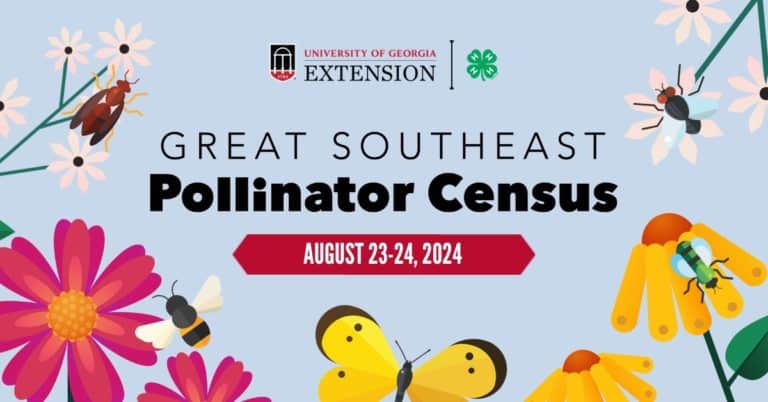
Calendars are being marked and pollinator gardens are being readied for the 6th Annual Great Southeast Pollinator Census. This community science event takes place each August with this year’s dates being August 23rd and 24th. During those date participants venture out to their pollinator garden and for 15 minutes they count the pollinators that land on their chosen pollinator plant. Counters place the pollinators into one of eight categories: carpenter bee, bumble bee, honey bee, small bee, wasp, fly, butterfly/moth, and other insects.
This initiative was started by Becky Griffin from University of Georgia Extension. She is the Community & School Garden Coordinator and was finding gardeners throughout her state that maybe knew plant selection and soil health but were lacking in insect knowledge. At the same time, she was working with educators and finding that many were not educated in entomology while in college and were loath to teach it to their students. Griffin felt the Pollinator Census would be an avenue to not only provide pollinator population data to researchers but at the same time increase entomological literacy and create lacking sustainable pollinator habitat throughout the state.
This project has grown to include South Carolina, North Carolina, and Florida. The success of the Census is due to the project partners throughout these states and the enthusiasm of the participants. Since its inception, participation has increased over 200% and over 2,500 new sustainable pollinator habitats have been created. It is easy to learn to differentiate between the insect categories and participants usually respond to participating by wanting to increase their pollinator habitat and learn more about the insects.
So, if you live in one of the participating states, visit https://GSePC.org , and learn how to be(e) part of this worthwhile project. Considering joining their social media at Southeast Pollinator Census Facebook Group and @SoutheastPollinators on Instagram. The project’s motto, “protecting pollinators one count at a time,” means that your counts really do matter!